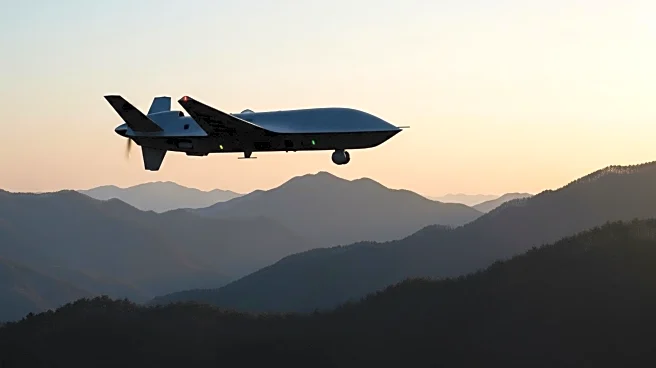What's Happening?
A 2019 mission involving Navy SEALs in North Korea aimed to plant an electronic device to intercept communications of Kim Jong Un. The operation, which required President Trump's approval, resulted in the deaths of unarmed North Koreans. The mission occurred during high-level nuclear talks between the US and North Korea. The SEAL Team Six rehearsed extensively for the operation, which involved navigating North Korean waters and installing the device. The mission's failure and the resulting fatalities have raised questions about the handling and oversight of such operations.
Why It's Important?
The incident underscores the complexities and risks associated with covert military operations in hostile territories. It highlights the potential diplomatic fallout and ethical considerations of conducting missions that result in civilian casualties. The operation's failure may impact US-North Korea relations and influence future diplomatic engagements and military strategies.
What's Next?
The US government may face pressure to review and potentially revise its approach to covert operations, ensuring better oversight and minimizing risks to civilians. The incident could lead to increased scrutiny from Congress and calls for transparency in military operations involving foreign territories.
Beyond the Headlines
The mission raises ethical questions about the use of military force and the consequences of covert operations. It also highlights the challenges of balancing national security interests with diplomatic relations and human rights considerations.










